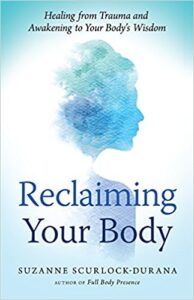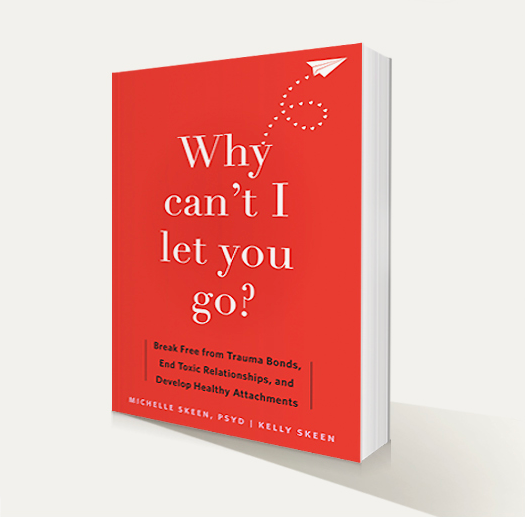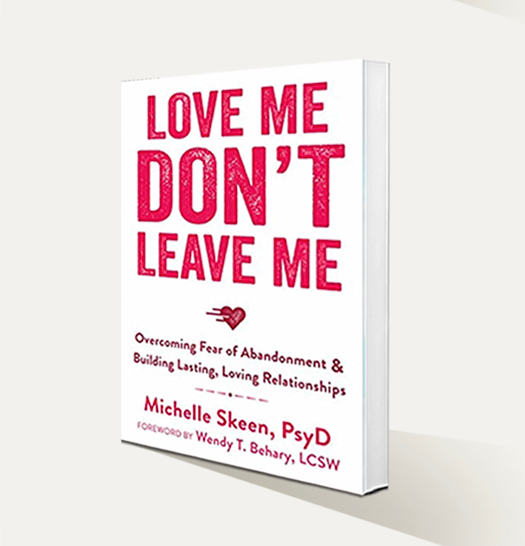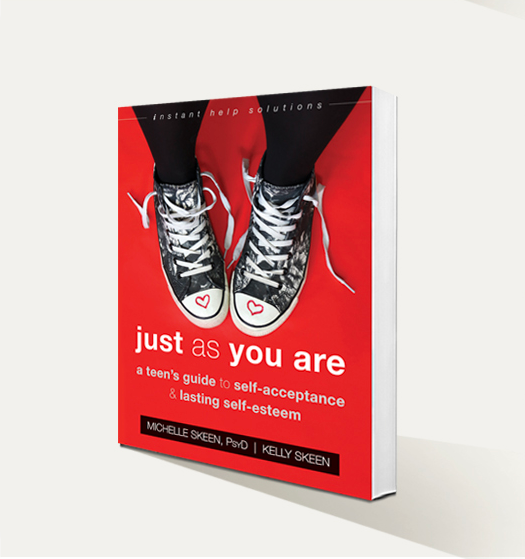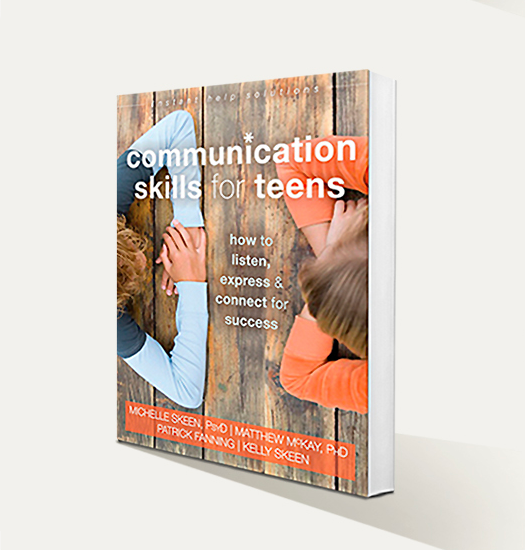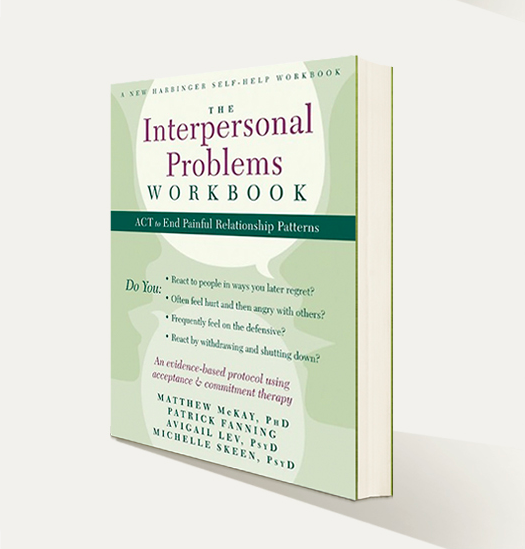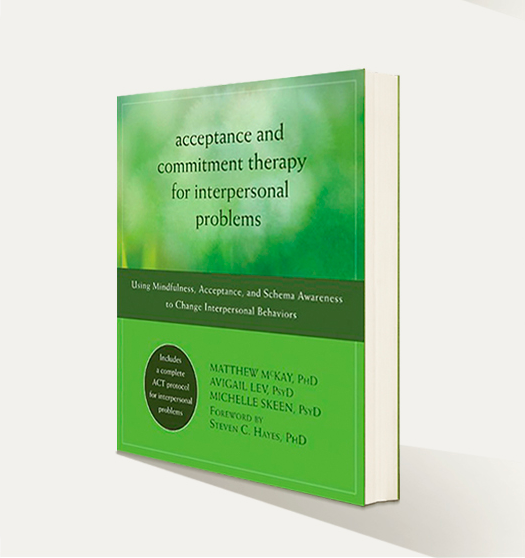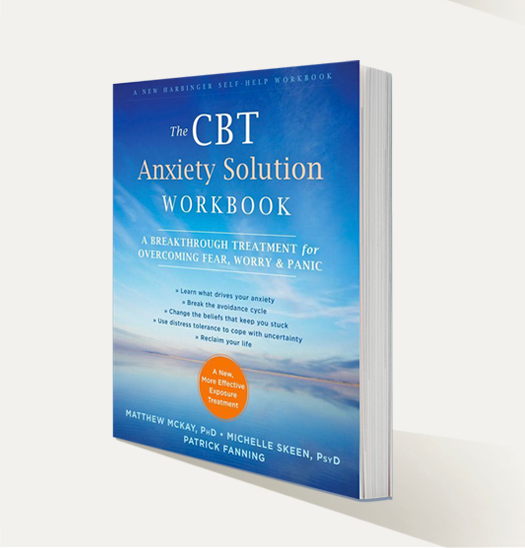Radio show on Thursday November 1, 2018
This week on Relationships 2.0 my guest host is Shawn T. Smith PsyD who interviewed me about my book Love Me Don’t Leave Me: Overcoming the Fear of Abandonment & Building Lasting, Loving Relationships
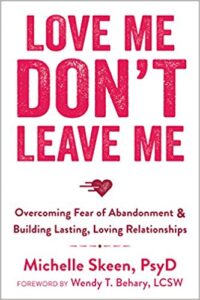 About the book: Everyone thrives on love, comfort, and the safety of family, friends, and community. But if you are denied these basic comforts early in life, whether through a lack of physical affection or emotional bonding, you may develop intense fears of abandonment that can last well into adulthood―fears so powerful that they can actually cause you to push people away. If you suffer from fears of abandonment, you may have underlying feelings of anger, shame, fear, anxiety, depression, and grief. These emotions are intense and painful, and when they surface they can lead to a number of negative behaviors, such as jealousy, clinging, and emotional blackmail. In Love Me, Don’t Leave Me, therapist Michelle Skeen combines acceptance and commitment therapy (ACT), schema therapy, and dialectical behavioral therapy (DBT) to help you identify the root of your fears. In this book you’ll learn how schema coping behaviors―deeply entrenched and automatic behaviors rooted in childhood experiences and fears―can take over and cause you to inadvertently sabotage your relationships. By recognizing these coping behaviors and understanding their cause, you will not only gain powerful insights into your own mind, but also into the minds of those around you. If you are ready to break the self-fulfilling cycle of mistrust, clinginess, and heartbreak and start building lasting, trusting relationships, this book will be your guide.
About the book: Everyone thrives on love, comfort, and the safety of family, friends, and community. But if you are denied these basic comforts early in life, whether through a lack of physical affection or emotional bonding, you may develop intense fears of abandonment that can last well into adulthood―fears so powerful that they can actually cause you to push people away. If you suffer from fears of abandonment, you may have underlying feelings of anger, shame, fear, anxiety, depression, and grief. These emotions are intense and painful, and when they surface they can lead to a number of negative behaviors, such as jealousy, clinging, and emotional blackmail. In Love Me, Don’t Leave Me, therapist Michelle Skeen combines acceptance and commitment therapy (ACT), schema therapy, and dialectical behavioral therapy (DBT) to help you identify the root of your fears. In this book you’ll learn how schema coping behaviors―deeply entrenched and automatic behaviors rooted in childhood experiences and fears―can take over and cause you to inadvertently sabotage your relationships. By recognizing these coping behaviors and understanding their cause, you will not only gain powerful insights into your own mind, but also into the minds of those around you. If you are ready to break the self-fulfilling cycle of mistrust, clinginess, and heartbreak and start building lasting, trusting relationships, this book will be your guide.
About the author: Michelle Skeen, PsyD, has a doctorate in clinical psychology. She is author of seven books, all designed to enhance relationships by emphasizing the importance of identifying core values and valued intentions, limited thinking, mindfulness, self-compassion, empathy, and effective communication and conflict resolution skills. Her passion is coaching individuals in creating and maintaining healthy relationships by bringing awareness to obstacles (fears and beliefs), which often work unconsciously to limit connections with others. Michelle believes that an early introduction and education in core values and healthy communication are essential life skills for success. To that end, Michelle and her daughter, Kelly, coauthored Communication Skills for Teens and Just As You Are. Skeen completed her postdoctoral work at the University of California, San Francisco. She codeveloped an empirically validated protocol for the treatment of interpersonal problems that resulted in two books: Acceptance and Commitment Therapy for Interpersonal Problems and The Interpersonal Problems Workbook. Michelle’s work has appeared in more than thirty publications around the world. She hosts a weekly radio show called Relationships 2.0 with Dr. Michelle Skeen that airs nationally. To find out more, visit her website at www.michelleskeen.com.
My radio show on Thursday September 13, 2018
This week on Relationships 2.0 my guest is Jonice Webb, PhD author of Running On Empty No More: Transform Your Relationships With Your Partner, Your Parents & Your Children
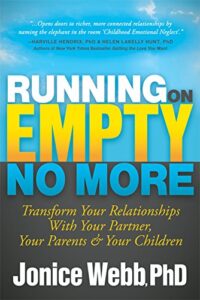 About the book:
About the book:
Since the publication of Running on Empty: Overcome Your Childhood Emotional Neglect, many thousands of people have learned that invisible Childhood Emotional Neglect, or CEN, has been weighing on them their entire lives, and are now in the process of recovery. Running on Empty No More: Transform Your Relationships will offer even more solutions for the effects of CEN on people’s lives: how to talk about CEN, and heal it, in relationships with partners, parents, and children.
About the author:
Jonice Webb, PhD is a licensed psychologist, and author of the groundbreaking bestseller, Running on Empty: Overcome your Childhood Emotional Neglect. Dr. Webb has been interviewed by NPR and the Chicago Tribune, and featured in Psychology Today and Elephant Journal. She writes the Childhood Emotional Neglect blog on psychcentral.com. Dr. Webb has an outpatient psychotherapy practice in Lexington, Massachusetts.
My radio show on Thursday December 7, 2017
This week on Relationships 2.0 my guest is Ira Israel author of How To Survive Your Childhood Now That You’re An Adult: A Path to Authenticity and Awakening
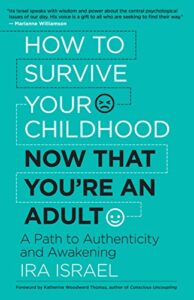 About the book:
About the book:
As children, we learned to get approval by creating facades to help us get our emotional and psychological needs met, but we also rebelled against authority as a way of individuating. As adults, these conflicting desires leave many of us feeling anxious or depressed because our authentic selves are buried deep beneath glitzy or rebellious exteriors or some combination thereof. In this provocative book, eclectic teacher and therapist Ira Israel offers a powerful, comprehensive, step-by-step path to recognizing the ways of being that we created as children and transcending them with compassion and acceptance. By doing so, we discover our true callings and cultivate the authentic love we were born deserving.
About the author:
Psychotherapist Ira Israel graduated from the University of Pennsylvania and has graduate degrees in philosophy, religious studies, and psychology. He leads workshops at the Esalen Institute and throughout the United States and has a private practice in Santa Monica, California.
My radio show on Thursday June 15, 2017
This week on Relationships 2.0 my guest is Suzanne Scurlock-Durana author of Reclaiming Your Body: Healing From Trauma and Awakening to Your Body’s Wisdom
About the book:
A guided tour through the body’s innate healing powers
Many of us have learned to ignore, deny, or even mistrust the wise messages our bodies give us. The result is that when trauma strikes, a time when we need every aspect of our beings to master the challenge, we may find ourselves disconnected from our greatest strengths. Suzanne Scurlock-Durana, who has spent thirty years studying the gifts of the body and teaching thousands how to reclaim them, began to recognize this strength, which she likens to a GPS, when she herself experienced a life-threatening trauma. Here she walks readers through different areas of the body, revealing the wisdom they hold and how to reconnect with that wisdom. As she shows in this warm, compassionate book, the body’s abilities are always available; we must simply reconnect with them.
About the author:
Suzanne Scurlock-Durana’s Healing from the Core curriculum, combined with CranioSacral therapy and other bodywork modalities, creates a complete, body-centered guide to awareness, healing, and joy. She is also the author of Full Body Presence. She teaches around the world and lives in Reston, Virginia.
My radio show on Thursday July 28, 2016
This week on Relationships 2.0 my guest is Cheryl M. Bradshaw, MA author of How to Like Yourself: A Teen’s Guide to Quieting Your Inner Critic and Building Lasting Self-Esteem
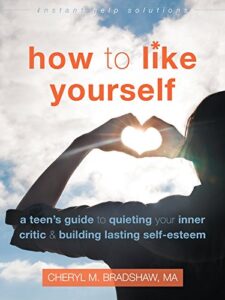
About the book:
Don’t let your inner critic get in the way of being confident! How to Like Yourself offers a quirky, inspiring, and practical guide to help you overcome feelings of self-criticism, improve self-esteem, and be the true star in your life.
With all the pressures of school, friends, and dating, you’re especially vulnerable to low self-esteem in your teen years. But often, the biggest threat to your confidence is your own inner critic—whose unrelenting negativity can result in feelings of inadequacy, depression, and anxiety. This must-have guide offers real ways to help you fight back, be kind to yourself, and move forward with confidence.
Inside, you’ll learn the importance of self-forgiveness, accepting your faults, and how to focus on the things that make you awesome! You’ll also learn strategies for defeating the dreaded ICK—the inner critic know-it-all who keeps knocking you down—and how to escape the common thought traps that hold you back from feeling good about yourself.
This book unlocks the mystery of the most important relationship you will ever have—the one with yourself! So, get ready to find your true inner voice. A kinder, gentler one that will support you as you reach for your goals and create the fabulous life you were meant to live!
About the author:
Cheryl has worked as a counsellor at Sheridan College and currently works at the University of Guelph as a counsellor/therapist for registered students, and currently also has a private practice in counseling, psychotherapy, and life coaching in the heart of Waterdown, Ontario. With a Bachelor’s of Education and a background in teaching, as well as a Master of Arts in Counseling Psychology, she specializes in working with young people, anyone experiencing depression, anxiety, stress, grief, loss of direction, or other life concerns, and enjoys working with anyone who feels a connection and fit with her.
Stop Self-Sabotaging Your Relationships: New Book Claims that We ALL Fear Abandonment and Reveals What We Can Do to Conquer It
by Scarlett Russell
dailymail.co.uk
Childhood trauma, bad break-ups and ‘negative core beliefs’ could be the reason you’re unlucky in love, according to a new book written by clinical psychologist Michelle Skeen, PsyD.
In the book, Love Me, Don’t Leave Me, Skeen describes how a single negative childhood memory or painful break-up in adolescence can lead to deep-rooted feelings of abandonment in later life. And that one single experience could be the one thing that is holding you back from having a loving, lasting relationship.
‘I’ve been working with couples for 12 years and abandonment issues arise again and again,’ Skeen explained to MailOnline. ‘They can surface anywhere from the earliest stages of dating right through to marriage and often go un-resolved. But if we pay attention we start to recognise patterns and themes.
‘We’re all born with the fear of abandonment; if we don’t get looked after, we die. It’s just the degree to which we have it.
The problem isn’t that you’re experiencing the painful emotions or negative thoughts, it’s that you are reacting with unhelpful behaviors.’
Here, Skeen explains some of the ways fear of abandonment may be sabotaging your relationships – and details how you can put a stop to them once and for all.
Trying to Force a Relationship that Isn’t There
‘There is so much uncertainty and ambiguity in dating,’ says Skeen. ‘Safety means predicting, and if we have a fear of being left or rejected, we would rather force an outcome.’
Love Me Don’t Leave Me offers exercises to help you spot the associations you have with these fears, pushing you to think back to times you have felt vulnerable. This enables you to identify all the feelings involved in that experience which will in turn explain your relationship ‘triggers’ – fear that is activated in certain situations.
‘People you meet will have their own set of core beliefs, but they may be less in tune with them and can pull back before the relationship has a chance to grow,’ Skeen adds. ‘Reassuring them will help, but you can only do so much.
‘See the ending of a relationship as a chance for increased awareness about yourself.’
Starting Fights to Push your Partner
‘People do this to test the relationship as their fear of being abandoned means they are expecting to be left anyway, so are almost seeing how far they can push their partner before breaking point,’ says Skeen.
‘Before you know it, you’ve pushed too far and they’ve left, as your expected, but who’s fault is that?’
Skeen suggests creating a ‘Snow Globe’ – focusing on a particularly painful memory and writing down all the details and emotions around it.
‘This makes you more aware of your issue. When it is activated – through an argument or certain behavior it’s shaken like a Snow Globe, but instead of reacting to that fear, you will be able to think and act rationally, communicating your fears.
The Pre-emptive Strike
Have you ever panicked and ended a perfectly good relationship?
‘When we fall for someone it can feel like a loss of control,’ says Skeen. ‘Your reaction may be to strike out altogether, rationalizing that you’re leaving that person before they leave you, even if they have no intention of leaving you. It’s destructive behavior.’
Skeen says you must exercise mindfulness in this situations, rather than automatically ‘freaking out’.
‘It’s the skill of staying in the present and not indulging in your initial, potentially damaging, reaction,’ she adds. ‘You must develop a careful and compassionate response to your current situation. Don’t freak out end it!’
When your issues are triggered, mentally repeat the words, ‘thought’ or ‘emotion.’ This will not only relax you, but make you realize that’s just what these feelings are: thoughts and emotions.
Getting Involved with Someone Unobtainable
Choosing a partner who is married, is known to be a womanizer or who has a demanding job that leaves no room for intimacy are all decisions which stem from fears of abandonment, according to Skeen.
‘If you are convinced no one is good enough, you will choose unsuitable partners who will leave you – as you expect,’ says Skeen. ‘People complain that it’s difficult to meet the right person, but ultimately we have to look at ourselves.’
The book lists common traits found in unsuitable partners, such as being controlling, possessive, flaky or judgmental – and teaches you to focus on values; not specific goals to achieve but the direction you want your life to go in.
‘Use your values to keep you on track, to help you make the proper decision when you’re at that moment of choice when you can choose your unhelpful coping behaviors,’ says Skeen.
Overreacting
‘When we fall for a guy, especially after we’ve slept with them and our hormones are in overdrive, it’s easy to let emotions rather than rationality, take the lead,’ says Skeen. ‘Pushing for that immediate outcome is always going to be really damaging.’
According to the book, the key is to avoiding irrational behavior is to distract yourself. Go for a run or call a friend you know is going through a tough time.
‘Most important is to be comfortable with feeling a little uncomfortable,’ she says. ‘Don’t react to this feeling of unease, just ride it out. Accept that it’s simply an uncomfortable feeling, and that’s all. It doesn’t need attention, or to be fixed.
‘Once you figure that out, the rest just isn’t important.’
Relying on Your Partner for Everything
Being in a relationship means being honest about your wants and needs, says Skeen, but it’s important to have realistic needs based on the present, not the past.
‘We often don’t get our needs met because we’re worried about appearing demanding,’ she explains. ‘But someone with abandonment issues may expect their partner to be all the things they’ve been missing, such as a parent, carer or even previous boyfriend.
‘You’re always going to be disappointed and make the other person feel like they’re a disappointment. You have to make that distinction and let go of that so you don’t overburden the current relationship.’
Read it on dailymail.co.uk
My radio show on Tuesday October 21, 2014
This week on Relationships 2.0 my guest is Shoshana Bennett, PhD author of Children of the Depressed: Healing the Childhood Wounds That Come From Growing Up With A Depressed Parent.
 About the book:
About the book:
Have you ever wondered, Why am I so negative? or Why is my life so chaotic? Whether or not your parent was ever formally diagnosed with depression, you’ve probably always known there was something different about your upbringing. And even though you’ve grown up and moved on, you may still feel the after-effects of living with your parent’s illness.
In Children of the Depressed, a depression expert helps adult children understand and overcome common problems that stem from growing up with a depressed parent, such as poor communication skills and negative self-talk. Using skills and practices rooted in cognitive behavioral therapy (CBT), you will learn to shed the old dynamics and ways of thinking that have been weighing you down and keeping you from enjoying healthy relationships and the life you deserve.
Most books on depression only focus on getting help for the depressed person. This book is written for you, the adult child of parents with who have struggled with depression. You need emotional healing after a dysfunctional childhood, and most importantly—you need an opportunity for your voice to be heard.
You don’t have to become stuck in the past. By identifying and recognizing the feelings you experienced at a young age, you will start laying the groundwork for a happier and healthier life—socially, physically, emotionally, and psychologically.
About the author:
Shoshana Bennett, Ph.D. (“Dr. Shosh”) from the popular DrShosh.com Radio Show is the author of Pregnant on Prozac, Postpartum Depression For Dummies, and co-author of Beyond the Blues: Understanding and Treating Prenatal and Postpartum Depression & Anxiety. She is also the creator of the new mobile app PPD Gone. National TV shows including “20/20,” “Discovery Channel,” “The Doctors” and “The Ricki Lake Show” feature Dr. Shosh as the pregnancy and postpartum mood expert and news stations such as CNN consult her. Several publications including the San Francisco Chronicle and the San Jose Mercury News have written articles on Dr. Shosh’s work. She’s interviewed regularly on national radio and has been quoted in dozens of newspapers and magazines such as The Wall Street Journal, WebMD, Boston Globe, Fit Pregnancy, Glamour, Parenting, Psychology Today, New York Post, Self, Cosmopolitan, and the Chicago Tribune.
Dr. Shosh is a pioneer in the field. She is a survivor of two life-threatening postpartum depressions. She founded Postpartum Assistance for Mothers in 1987, and is a former president of Postpartum Support International. Dr. Shosh helped develop the official Postpartum Support International training curriculum for professionals which is now considered the gold standard in the field. She has helped over 19,000 women worldwide through individual consultations, support groups and wellness seminars. As a noted guest lecturer and keynote speaker, she travels throughout the US and abroad, training medical and mental health professionals to assess and treat postpartum depression and related mood and anxiety disorders. She earned three teaching credentials, two masters degrees, a Ph.D. and is licensed as a clinical psychologist.
Guest for my radio show on Tuesday June 25, 2013
My guests this week on Relationships 2.0 are Raychelle Cassada Lohmann and Julia Taylor, authors of The Bullying Workbook for Teens.
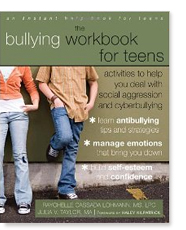 About the book:
About the book:
Being a teenager is difficult enough without having to worry about bullying. If you have experienced bullying or cyberbullying, you aren’t alone. Bullying and cyberbullying are at an all-time high, and the effects of both can be tremendous for a young person who is already dealing with major school, life, and home stressors.
The Bullying Workbook for Teens incorporates cognitive behavioral therapy (CBT) to help ease anxiety, fear, stress, and other emotions associated with being bullied. The workbook is made up of 42 step-by-step self-help activities designed to help you learn anti-bullying tips and strategies, manage emotions such as anxiety, fear, anger, and depression, and learn constructive communication skills to help you express your feelings.
With this workbook as your guide, you will also learn how to identify toxic friendships, how to build your own self-confidence, and importantly, how to ask for help when bullying gets out of control. The exercises in this book are designed to be useful in everyday situations, so that you gain helpful tools to help you combat bullying or cyberbullying in your life. Bullying can happen to anyone, but there is hope to make a change and stand up for yourself, once and for all.
If you are experiencing bullying, this book will offer sound psychological support to help you gain confidence in yourself and in your interactions with others. It is also a great resource for parents, educators, and counseling professionals.
About the authors:
Raychelle Cassada Lohmann, MS, LPC, is a national board certified counselor and a licensed professional counselor. Lohmann has worked as a school counselor at the middle school and high school levels, and has helped hundreds of teens deal with feelings of frustration and anger. Raychelle has participated in extensive research on anger and specializes in individual and group counseling for anger management. She is the author of The Anger Workbook for Teens and Staying Cool…When You’re Steaming Mad.
Julia V. Taylor, MA, is author of Perfectly You, G.I.R.L.S. (Girls in Real Life Situations), and Salvaging Sisterhood. She speaks nationally about relational aggression, body image, media literacy, and other teen topics. Taylor has experience working in middle and high school settings as a professional school counselor.
Guest for my radio show on Tuesday October 9, 2012
My guest this week is Leslie Sokol, PhD co-author of Think Confident, Be Confident for Teens.
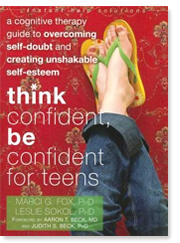 About the book:
About the book:
Confidence is like a magnet that attracts people to you and helps you get closer to reaching your goals. When you believe in yourself, you send the message that you have the brains, ability, and talent to handle whatever life sends your way. And the truth is, you do!
Think Confident, Be Confident for Teens shows you how to tap into your self-esteem so you can be yourself in every situation, no matter how awkward you feel or scary that may sound. The fun exercises and tips in this confidence-coaching workbook will guide you past feelings of self-doubt and encourage you to believe in yourself, strengthen your friendships, and meet every challenge head-on.
• Recognize and overcome the self-doubting thoughts that bring you down
• Grow your confident thoughts into confident actions
• Enjoy a full social life and attract new friends
• Feel smarter at school and build on your extracurricular talents
This book has been awarded The Association for Behavioral and Cognitive Therapies Self-Help Seal of Merit — an award bestowed on outstanding self-help books that are consistent with cognitive behavioral therapy (CBT) principles and that incorporate scientifically tested strategies for overcoming mental health difficulties. Used alone or in conjunction with therapy, our books offer powerful tools readers can use to jump-start changes in their lives.
About the author:
Leslie Sokol, Ph.D., a licensed psychologist, is Senior Faculty, past Director of Education and one of the principal instructors with the internationally acclaimed Beck Institute for Cognitive Behavior Therapy in Philadelphia. She has taught cognitive therapy to professional and para-professional groups, nationally and internationally, on such topics as: depression, anxiety, personality disorders, stress management, psychosis, substance abuse, and couples’ problems. In addition to her roles at the Beck Institute, she maintains a private practice in a primary care setting in the Philadelphia area. In her role as Chairman of Behavioral Science in the Family Practice Department at Mercy Suburban Hospital, she taught psychiatry to family medicine residents for twenty-two years. She continues to serve as the staff psychologist in the cardiac and physical rehabilitation departments.
Guest for my radio show on Tuesday September 4, 2012
My guest for Tuesday September 4th is Lucie Hemmen. I am really excited about our chat because we will be discussing a subject that is very close to my heart–parenting a teen girl. It is a joy and a challenge to raise a teen girl. Lucie’s book, Parenting a Teen Girl: A Crash Course on Conflict, Communication, and Connection with Your Teen Daughter, is a great contribution to this important topic.
About the book:
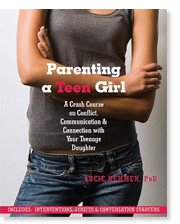 It’s not easy to be a teen girl, and it’s definitely not easy parenting one. Parents everywhere struggle to respond appropriately to challenging behavior, hit-or-miss communication, and fluctuating moods commonly exhibited by teenage girls. More than previous generations, today’s teen girls face a daunting range of stressors that put them at risk for a range of serious issues, including self-harming behaviors, substance abuse, eating disorders, anxiety, and depression. Is it any wonder that parents are overwhelmed?
It’s not easy to be a teen girl, and it’s definitely not easy parenting one. Parents everywhere struggle to respond appropriately to challenging behavior, hit-or-miss communication, and fluctuating moods commonly exhibited by teenage girls. More than previous generations, today’s teen girls face a daunting range of stressors that put them at risk for a range of serious issues, including self-harming behaviors, substance abuse, eating disorders, anxiety, and depression. Is it any wonder that parents are overwhelmed?
Parenting a Teen Girl is a guide for busy parents who want bottom-line information and tips that make sense—and work. It also offers scripts to improve communication, and exercises to navigate stressful interactions with skill and compassion. Whether your teen girl is struggling with academic pressure, social difficulties, physical self-care, or technology overload, this book offers practical advice to help you connect with your teen girl. Parents and teens alike can enjoy a positive connection once common parent-teen pitfalls are replaced with solid understanding and strategies that work.
In this book, you will learn how to:
• Maximize your teen’s healthy development
• Understand what underlies her moods and behavior
• Implement strategies for positive results
• Communicate effectively about difficult issues
• Enjoy and appreciate time with your teen daughter
About the author:
Lucie Hemmen, Ph.D. is a licensed clinical psychologist with a private practice in Santa Cruz, California. She is also an author with her first book, Parenting a Teen Girl: A Crash Course on Conflict, Communication, and Connection with Your Teen Daughter which was released on August 1, 2012. For the past 20 years, Lucie has worked with individuals of all ages as well as couples and families. In addition to working with issues such as depression, stress, anxiety, trauma, and grief, Lucie is committed to promoting healthy teen development by working with teens, their parents, and their communities.
 About the book: Everyone thrives on love, comfort, and the safety of family, friends, and community. But if you are denied these basic comforts early in life, whether through a lack of physical affection or emotional bonding, you may develop intense fears of abandonment that can last well into adulthood―fears so powerful that they can actually cause you to push people away. If you suffer from fears of abandonment, you may have underlying feelings of anger, shame, fear, anxiety, depression, and grief. These emotions are intense and painful, and when they surface they can lead to a number of negative behaviors, such as jealousy, clinging, and emotional blackmail. In Love Me, Don’t Leave Me, therapist Michelle Skeen combines acceptance and commitment therapy (ACT), schema therapy, and dialectical behavioral therapy (DBT) to help you identify the root of your fears. In this book you’ll learn how schema coping behaviors―deeply entrenched and automatic behaviors rooted in childhood experiences and fears―can take over and cause you to inadvertently sabotage your relationships. By recognizing these coping behaviors and understanding their cause, you will not only gain powerful insights into your own mind, but also into the minds of those around you. If you are ready to break the self-fulfilling cycle of mistrust, clinginess, and heartbreak and start building lasting, trusting relationships, this book will be your guide.
About the book: Everyone thrives on love, comfort, and the safety of family, friends, and community. But if you are denied these basic comforts early in life, whether through a lack of physical affection or emotional bonding, you may develop intense fears of abandonment that can last well into adulthood―fears so powerful that they can actually cause you to push people away. If you suffer from fears of abandonment, you may have underlying feelings of anger, shame, fear, anxiety, depression, and grief. These emotions are intense and painful, and when they surface they can lead to a number of negative behaviors, such as jealousy, clinging, and emotional blackmail. In Love Me, Don’t Leave Me, therapist Michelle Skeen combines acceptance and commitment therapy (ACT), schema therapy, and dialectical behavioral therapy (DBT) to help you identify the root of your fears. In this book you’ll learn how schema coping behaviors―deeply entrenched and automatic behaviors rooted in childhood experiences and fears―can take over and cause you to inadvertently sabotage your relationships. By recognizing these coping behaviors and understanding their cause, you will not only gain powerful insights into your own mind, but also into the minds of those around you. If you are ready to break the self-fulfilling cycle of mistrust, clinginess, and heartbreak and start building lasting, trusting relationships, this book will be your guide.


